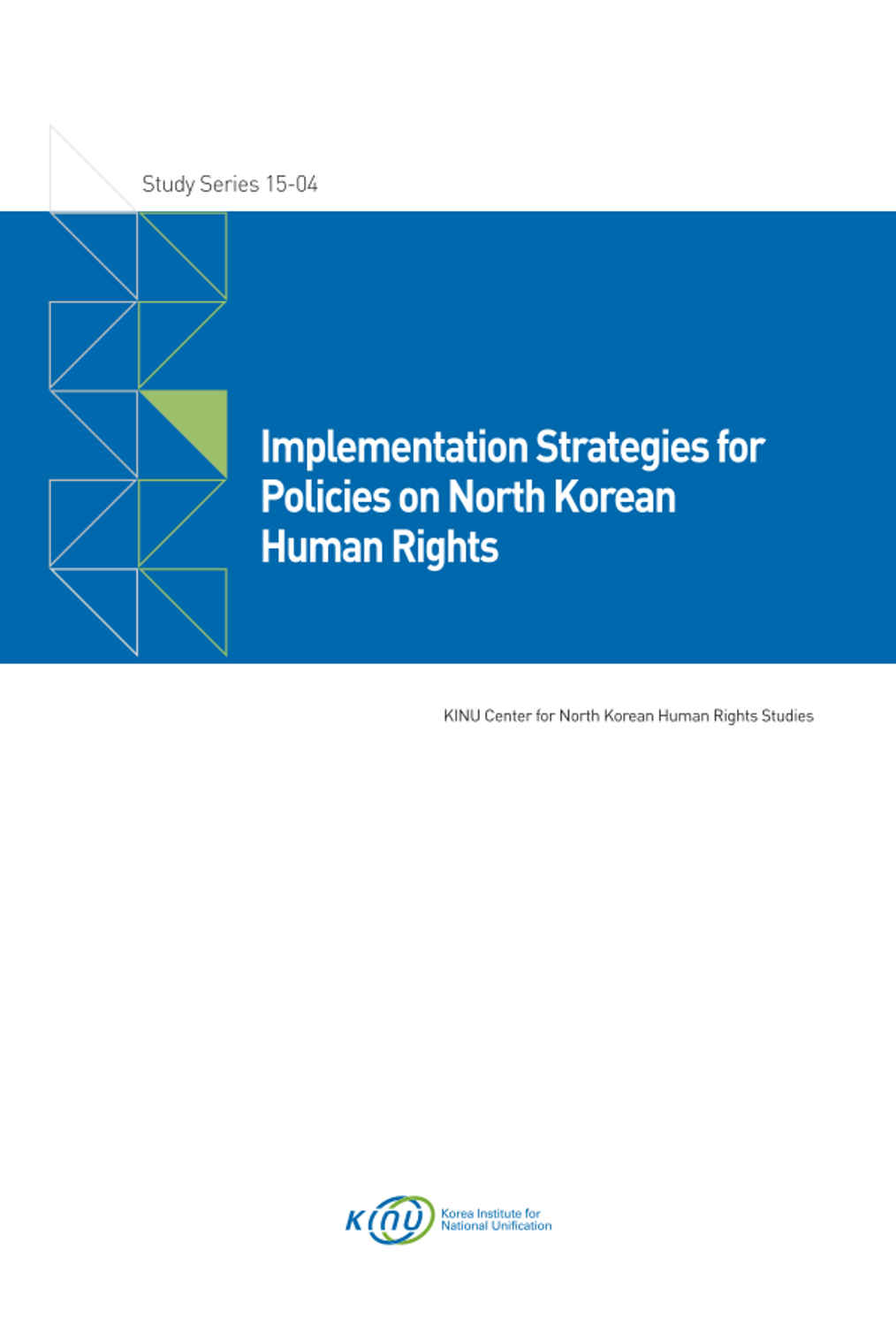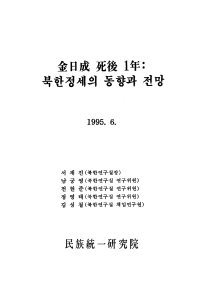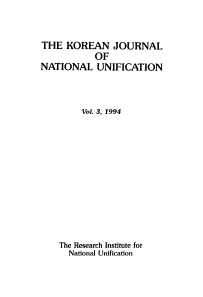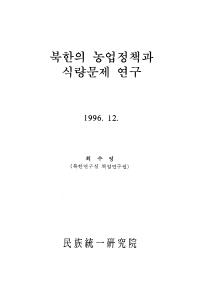
연구원발간물Study Series 2015-04
Implementation Strategies for Policies on North Korean Human Rights
- 발행사항
- Seoul : Korea Institute for National Unification, 2015
- 형태사항
- 54p. ; 23cm
- 총서사항
- Study Series
- ISBN
- 9788984798069
- 청구기호
- 000 SS15-04
소장정보
| 위치 | 등록번호 | 청구기호 / 출력 | 상태 | 반납예정일 |
|---|---|---|---|---|
이용 가능 (2) | ||||
| 1자료실 | G0015707 | 대출가능 | - | |
| 1자료실 | G0015708 | 대출가능 | - | |
이용 가능 (2)
- 등록번호
- G0015707
- 상태/반납예정일
- 대출가능
- -
- 위치/청구기호(출력)
- 1자료실
- 등록번호
- G0015708
- 상태/반납예정일
- 대출가능
- -
- 위치/청구기호(출력)
- 1자료실
책 소개
In 2014, North Korean human rights issue emerged as an important political agenda for the international community, going beyond from an issue to merely “monitor” to one which calls for full “accountability.” Following the United Nations human rights resolution in 2013, the Commission of Inquiry (COI) on human rights in the Democratic People’s Republic of Korea (DPRK) was established to determine whether North Korean human rights violation amounted to “crimes against humanity.” After one year of investigation, the COI concluded that there are systematic, widespread and grave violations of human rights in North Korea and these are classified as crimes against humanity under international law and that it is the responsibility of the international community to protect North Koreans from these crimes.
Accordingly, the UN General Assembly adopted a strong resolution on North Korean human rights. The resolution includes suggestions to refer those accountable to the International Criminal Court (ICC). In addition, the UN Security Council took on the North Korean human rights issue as an official agenda. It can be stated that the international community’s approach towards North Korean human rights moved beyond the dimension of monitoring, to one that calls for accountability.
As international pressure increases, North Korea has proactively and aggressively emphasized their position and efforts on the human rights situation.
The Park Geun-hye administration’s basic position on North Korean human rights is, first and foremost, under universally accepted norms, to actively take part in the international community’s measures while also harmonizing the value of human rights in South Korea’s policy on North Korea to fectively make possible the improvement of North Korean human rights. Since 2008, South Korea has maintained cooperation with the international community regarding policies on North Korean human rights including voting in favor of North Korean human rights resolution in the UN General Assembly and the Human Rights Council, etc. It is to ensure that respective policies on North Korea and North Korean human rights do not conflict or become incompatible, but form a virtuous cycle. In essence, it points out that the improvement of North Korean human rights situation is directly linked to strengthening capacity for Korean unification.
Through the Trust-building Process on the Korean Peninsula and the Dresden Initiative, the Park Geun-hye administration has demonstrated that unification is directly related to the lives of each individual, and has set the improvement of North Koreans’ quality of lives as a core task to achieve “a happy unification.” Accordingly, the Park administration has emphasized humanitarian support and establishment of public infrastructures.
Unification in which each individual leads a happy life demonstrates that the respective values of human rights and unification are harmonious and this is manifested through increasing unification capacity. Therefore, substantive improvements in North Korean human rights will strengthen the capacity towards unification and ultimately form the foundation for a happy unification.
Despite the international community’s gradual agreement on the North Korean human rights issue, South Korea has been unable to reach a consensus regarding the approach and perception of North Korean human rights problem as well as policy direction and measures.
The North Korean human rights issue has emerged as an international agenda as important as its nuclear problem. This provides an opportunity to formulate and implement more systematic and comprehensive policies on North Korean human rights. Furthermore, it should appropriately reflect specific measures and roadmaps to substantially improve North Korean human rights in South Korea’s policy on North Korea.
The objective of this report is to provide a direction for South Korea’s policies on North Korean human rights which can harmonise its policies on North Korea and the value of unification. Human rights improvement in North Korea and unification are indivisible and constitute core tasks to prepare for “an era of happy unification.” This report analyzes and assesses the international community and South Korea’s behavioral trend regarding North Korean human rights as well as North Korea’s responses prior to, and after, the adoption of the North Korean Human Rights resolution by the UN General Assembly.
The report also analyzes the objectives and measures, principles and direction for implementation, and finally, presents strategies for policies on North Korean human rights as well as the tasks ahead.
목차
1. Introduction
2. Environment Surrounding Policy on North Korean Human Rights
A. Trend of the International Community
B. Domestic Trend
C. North Korea’s Response
D. Assessment and Prospects
3. Objective and Direction of North Korean Human Rights Policy
A. Objectives and Means
B. Principles and Directions for Implementation
4. Strategies to Implement Policies on Human Rights in North Korea and Tasks Ahead
A. Implementation Strategy
B. Tasks Ahead
5. Conclusion




